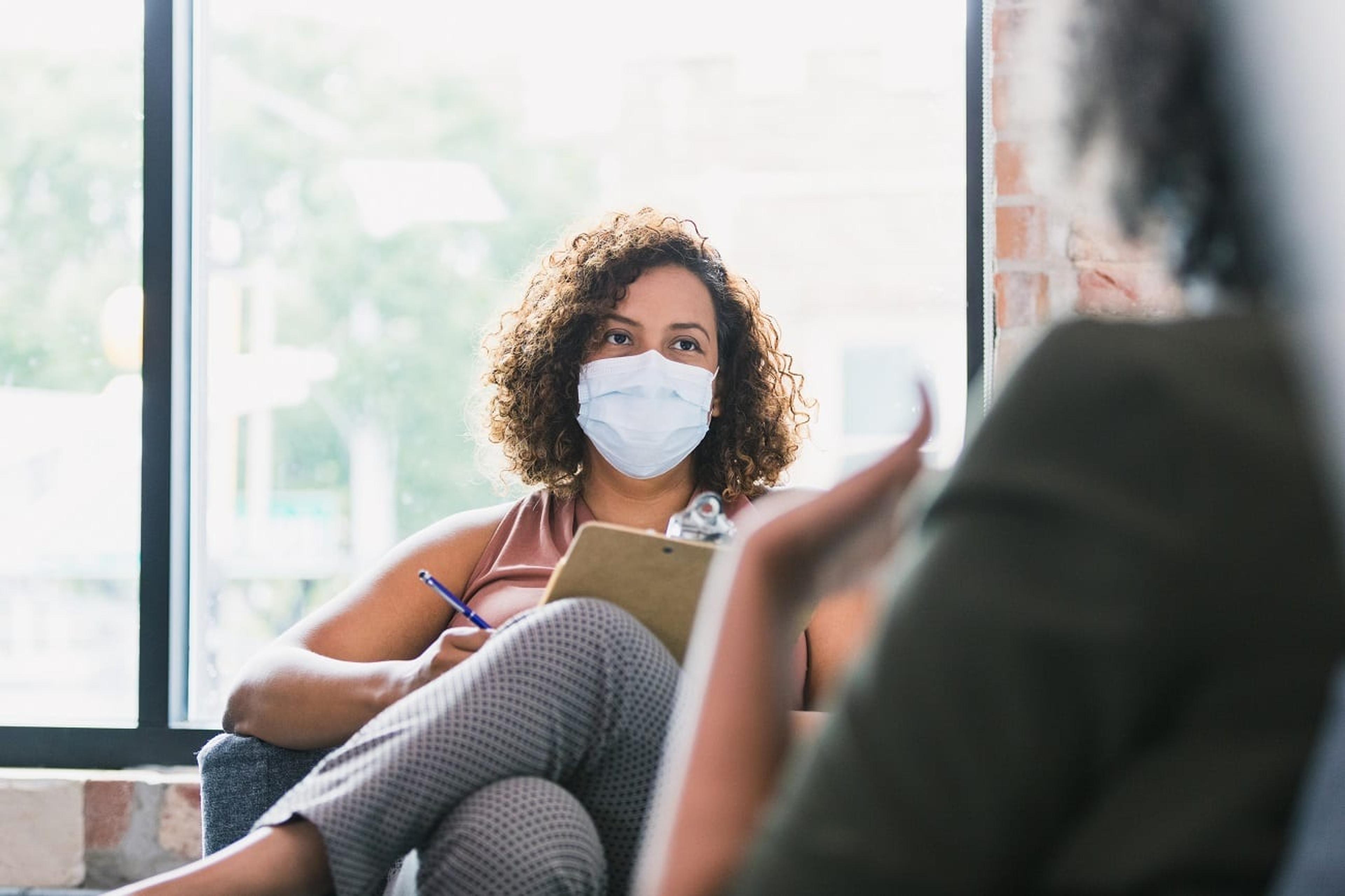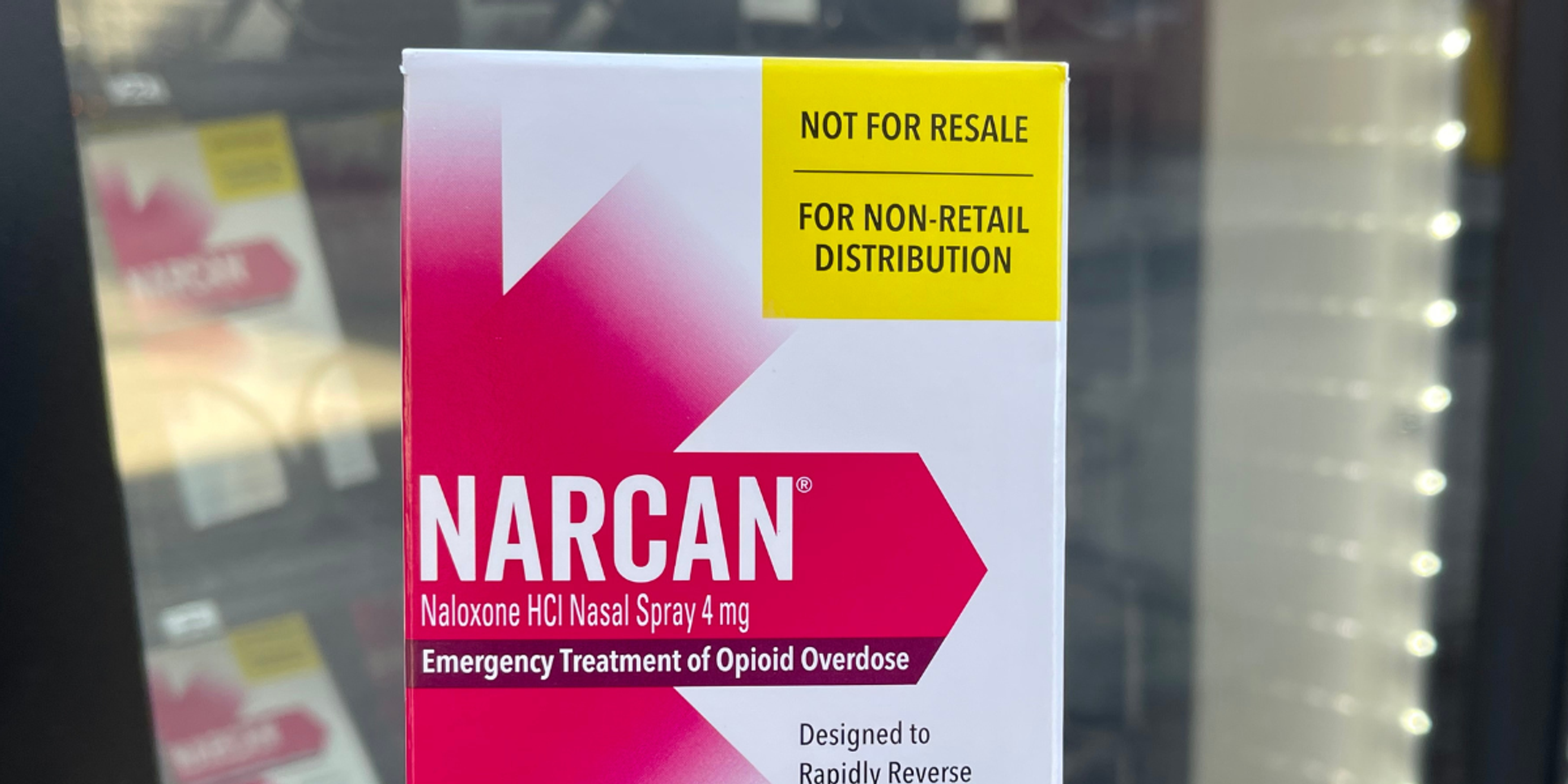Q & A: What to Expect at Your First Therapy Session
Amy Barczy
| 4 min read
Amy Barczy is a former brand journalist who authored content at Blue Cross Blue Shield of Michigan. Prior to her time at Blue Cross from 2019-2024, she was a statewide news reporter for MLive.com. She has a decade of storytelling experience in local news media markets including Lansing, Grand Rapids, Holland, Ann Arbor and Port Huron.

There is no reason too big or too small to talk to a therapist, says Michelle Pargman. She’s a licensed therapist and employee assistance program and wellness clinician with New Directions.
Michelle Pargman Pargman spoke with us about her approach to therapy, and the importance of taking time to check in with yourself.
Q: What happens in a first-time therapy session?
Pargman: "It’s an opportunity to uni-task. We are all multitasking. It’s an opportunity to take time out of the hustle of your life to check in with your thoughts, feelings and behaviors, to speak one’s truth and to walk away with increased hope. "In the first session I share expectations and information about what I’m providing, and confidentiality, and talk about what therapy is and what it isn’t. "Therapists have different approaches; I remind people that I’m not the only choice that they have – that if they feel that they’re not making the progress that they want to make, if it’s not through me then let it be somebody else."
Q: What is therapy, and what isn’t therapy?
Pargman: "I think it’s important to recognize and define therapy as a resource that empowers a person to look at the options they have. To look at helping people formulate their own internal resources so they feel more confident in navigating through the issues of what their circumstances are and feeling capable to make their own decisions and choices where they don’t have to rely on a therapist. "It’s a collaborative relationship: it’s not that a therapist will tell you what to do – and it’s easy to want that because we feel very lost. It’s more about a compass and giving oneself an opportunity to find direction."
Q: What kind of questions could someone expect?
Pargman: "'What brings you here today?' I ask about expectations, like, 'What are your expectations for counseling?' I’ve also incorporated, 'How are current news events affecting you?' as issues of racial and social injustice are really, heavily impacting people. "In subsequent sessions, I ask, 'What changes have you noticed for the good or for the worse from the last time we met? Where do you want to start?' A person could expect safety questions as well, like suicidal ideation, homicidal thoughts and substance abuse. There are safety areas that are really important, like domestic violence, child or elder abuse; also a person’s living situation – are they living alone, what’s the family structure. 'How are you sleeping?' I think that’s so basic; any kind of appetite or changes in eating, are they getting physical exercise, are they getting outside, any changes in jobs or relationships or hobbies? "We are often focused on what’s wrong with us. I’m a huge advocate of talking about what’s right with us. People may feel like they have to relive trauma, but I tend to focus on how those past things are impacting you now."
Q: Why should someone talk to a therapist?
Pargman: "There is no reason too big or too small to talk to a therapist. There are some indications, to me, that might bump it up – like inability to sleep, feeling withdrawn or apathetic, feeling down, helpless, hopeless, thoughts of death or suicide, having concentration problems, feeling overwhelmed, having excessive guilt or worrying – anything disruptive to your day-to-day life; including using substances or food to cope with thoughts, or if you hear or see things that no one else does. "But it doesn’t have to come to that. There really is no problem too big or too small."
-------------
Blue Cross Blue Shield of Michigan and Blue Care Network can help members find an in-network mental health professional by calling behavioral health access lines listed below: PPO: Behavioral Health Access Line | 1-800-762-2382
- A free and confidential resource that’s just a call away when you need immediate support. Behavioral health professionals answer, 24/7.
HMO: Behavioral Health Access Line | 1-800-482-5982
- Connect with a behavioral health clinician if you need help finding a mental health or substance use provider.
Behavioral health clinicians are available for routine assistance from 8 a.m. to 5 p.m., Monday through Friday. For urgent concerns after hours, clinicians are also available 24 hours a day, seven days a week. Crisis Assistance:
- If you feel that your condition is an emergency that’s not life threatening, call the National Suicide Prevention Lifeline for support at 1-800-273-8255.
- If your situation requires immediate emergency help to prevent death or serious harm to yourself or others, please seek help at the nearest emergency room or call 911.
Learn more about mental health and options you have as a member to seek help at bcbsm.com/mentalhealth. More from MIBluesPerspectives:
- Demystifying Mental Health Treatment
- Results-Driven Mental Health Treatment Model Expanding
- Has the Pandemic Changed Behavioral Health Care Delivery Forever?
Photo credit: Getty Images





